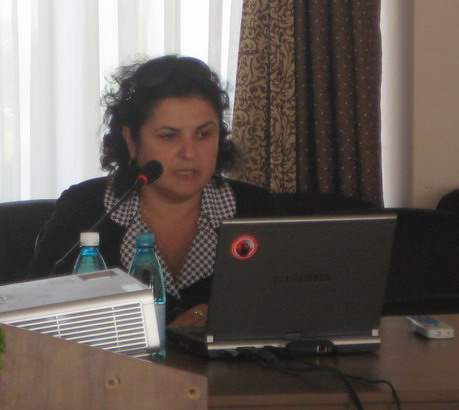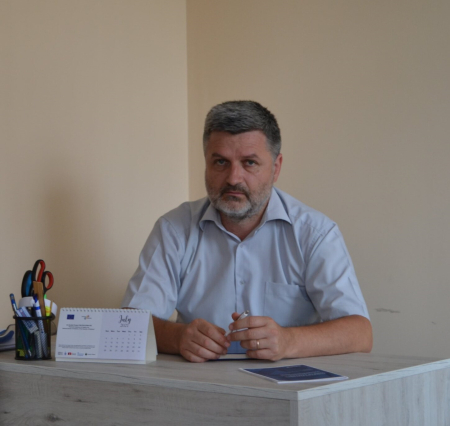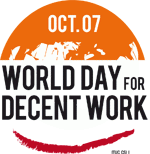Interview from Daniela Stefanescu, UNDP international consultant, Director of the Department of European Affairs and International Cooperation of the National Institute of Statistics of Romania

Daniela Stefanescu, UNDP international consultant, Director of the Department of European Affairs and International Cooperation of the National Institute of Statistics of Romania: Moldovan statistics is making good progress.
You came to Chisinau to provide support to the National Bureau of Statistics (NBS) of Moldova in improving statistical quality management and developing a handbook on quality in statistics in accordance with relevant European standards. What does the implementation of the concept of quality management mean and what specific activities have you carried out in this regard in Moldova?
My mission was built on three pillars. First, transfer of knowledge regarding the concept of Total Quality Management, its related principles and, respectively, the Excellence Framework for Quality Management (EFQM). To this end, a seminar was held with experts from the NBS, representatives of the main producers of statistics, NBS sector-based partners and users of statistical data and information. In this connection, I presented the criteria that define the quality of statistics, the European policies on quality, the main models and tools used at European level in the field of Total Quality Management. The seminar was followed by discussion, as, in addition to European rules and standards, Moldovan colleagues were very interested in Romanian experience. After the seminar, we had a round table where I proposed the participants to gain a deep insight into the statistical quality. We tried to build two of the tools used in statistical practice: a quality report and a list of questions for self-evaluation of statistical surveys by those dealing with surveys. The second pillar of my visit was built around discussions with my colleagues at NBS and several sector-based partners in an attempt to gather information in order to propose, at a later stage, a package of recommendations to the NBS management, in fact, a plan for quality development aimed at establishing concepts and improving the quality of statistical data. The third pillar was the development of a potential structure for the NBS Moldova and a bibliography for a handbook on quality for the NBS. There is a need for such a handbook, as it will provide an overview of mechanisms and tools used by the statistical office to quantify and assess the quality of institutional environment, statistical processes and products.
Will this assistance produce some specific results? What are they?
In addition to the guaranteed transfer of knowledge, this mission will result in a package of recommendations to be submitted to the NBS management and which, while being implemented over time, gradually, will allow for the development and introduction of the concept of statistical quality management and continuous improvement. This objective is in fact valid for the entire national statistical system. This does not mean that NBS is not currently monitoring the quality of statistics. The specialized divisions are the "guardians" of the statistical quality in each statistical area, by using traditional validations (non-response measurements, validation of primary data inputs, etc.). However, in future NBS will use a systemic, procedural, documented, periodic, and systematic approach to quality management.
What would be your recommendations to the Bureau of Statistics at this stage?
I outlined a number of ideas, proposals, which still need to be pondered over. In terms of organization, I would recommend, for example, to create an executive unit that would deal with quality management. I would recommend to establish a Council for statistical quality, which should include administrative decision makers who should decide on quality issues and consider high-level strategic priorities. I will encourage NBS to continue the already started initiatives relating to statistical quality, such as the introduction of a system of metadata (“data about statistical data”), periodical survey of user satisfaction. I will certainly recommend more training in statistical culture, in general, and the quality of statistics, in particular, and the strengthening of relations with producers of statistics, sector-based partners of the NBS, as a coordinator of the national statistical system. At this stage, I can certify that NBS is very concerned with quality issues, which makes me believe that progress will be achieved soon.
How would you rate the quality of statistics in Moldova at this stage? Is there a statistical culture?
I was delighted to note that there are a number of initiatives that fall within the context of statistical quality management, one of which is maintenance of a continuous dialogue with users, etc. The survey on satisfaction of statistical data users, which was finalized this summer, showed that users are satisfied with the statistical quality and statistical products, although some dissatisfactions were reported by certain categories of users. NBS is very well aware that there is a need to create a statistical culture. It is a step forward to be made by NBS in order to meet the requirements of statistical users. It is NBS that will explain the statistical approach, what is the statistical methodology, and what is the message behind the statistical figures.
All the initiatives of the NBS Moldova prove that there is significant progress, which is worth to be known by the society, since the activity of a statistician seems to be a routine, whereas the results made available to the society and decision makers are vital for taking the right decisions. Statistics should always be at the forefront of societal problems, as the statistical science and practice should provide decision makers with the information they need in order to take the right decisions, and then to be able to monitor them. Statistics is essential for all the citizens.
To what extent the quality of statistics is influenced by politics? Is there a risk that policy-makers might use statistical data to manipulate public opinion?
Politics does not interfere with statistics. Professional independence is one of the fundamental principles of statistics. Statistical office decides by itself on the methodologies to be applied in the context of statistical surveys and provides policy-makers, as well as other categories of users at the same time, with statistical data and survey results. It does not treat policy makers as preferential users.
During the seminar you touched upon the progress made by Romania in statistical quality management. How did you achieve such progress?
After 1990, we addressed the issue of statistical reform. The next stage was "transition of statistics", followed by "statistics of transition", and then we moved to harmonization with the European rules and standards. Romanian statistics is currently an active part of the European Statistical System. In fact, we should speak of the international family of statisticians, who built their rules, standards, methodologies, classifications; a statistical language, which was learned in its adapted form, and which is followed closely to ensure international comparability.
INS Romania made progress with the assistance of Eurostat (Statistical Office of the European Communities), the statistical institutes of EU member states, who provided us with their assistance through various programmes. Progress was obvious, the results were achieved very soon and were widely disseminated. At present, INS Romania, through its experts, can provide statistical assistance to other countries.
Thank you.
Interview by Natalia Costas within the UNDP/UNIFEM/UNFPA Joint Project "Strengthening the National Statistical System"
- Report a mistake. Select the desired text and press CTRL + ENTER




